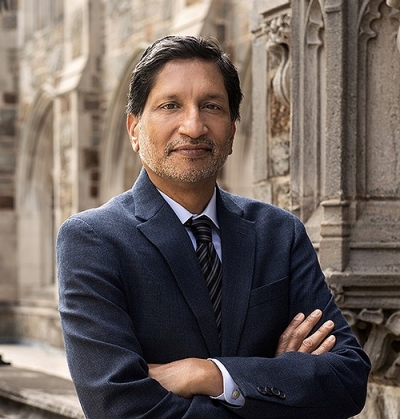Pollution is linked to an estimated nine million deaths each year worldwide--equivalent to one in six of all deaths, according to the first global analysis of the impact of all forms of pollution measured together, released in October by The Lancet Commission on Pollution and Health, a two-year project that has involved more than 40 international health and environmental authors.


Boston College Vice Provost for Research and DeLuca Professor of Biology Thomas Chiles and BC School of Social Work Dean Gautam Yadama are among the influential leaders, researchers, and practitioners that comprise the commission, which is backed by the British medical journal The Lancet and Mount Sinai’s Icahn School of Medicine, with support from the United Nations and the World Bank. It is co-chaired by BC alumnus Philip Landrigan ’63, MD, dean for Global Health at the Icahn School of Medicine, and Richard Fuller, president of Pure Earth, formerly known as the Blacksmith Institute.
The commission was convened in 2015 to provide actionable solutions to policymakers seeking to address the immense toll pollution takes on populations across the globe. To achieve its goal, the commission was charged with detailing the health and economic costs of pollution, developing solutions for policy makers, and dispelling the belief that pollution is an inevitable byproduct of an industrial world.
“Pollution is a tax on the poor—their health, livelihoods, and life chances. It is also a complex environmental, health, and social problem that requires a concerted, transdisciplinary approach to finding interventions that create positive change for the large number of people who are living in poverty worldwide,” said Yadama. “We must reframe pollution as a problem of the common good. We must reframe the fight against pollution as a collective action problem. We must reimagine ways to rely less on fossil fuels and more on renewables. And we must envision ways to leapfrog the poor to clean energy solutions.”
Chiles added that the commission hopes, in identifying pollution’s contribution to the global burden of disease, to hope to "use the information to inform key decision-makers around the world about the burden that pollution places on human health, economic development, and about pollution control solutions.”
The Lancet study offers recommendations about how to begin to solve the problem of pollution on a global scale and provides case studies of projects underway that have successfully controlled pollution levels. By engaging the perspective of policymakers, and other political and academic leaders alike, the report aims to speak to a broad audience in order to elevate pollution to an issue of global scale.
The Commission was designed to connect the issue of pollution directly with the United Nations’ Sustainable Development Goals and, already, the preparation of the report has seeded significant results. UN Environment’s next global conference will focus exclusively on pollution, and the World Health Organization has increased its focus on pollution-related disease.
“I am hopeful that, in delineating the pathways of pollution’s wide-ranging impact,” said Yadama, “the Commission might influence policy, behavioral, and technology responses to reduce pollution.”
Both Yadama and Chiles noted that environmental pollution is one of the largest causes of disease and death in low- and middle-income countries. Recent data from the World Health Organization and other sources suggest that exposure to polluted water, air, and soil contributed to an estimated 8.9 million deaths worldwide in 2012.
By comparison, deaths from HIV/AIDS, malaria, and tuberculosis totaled 2.5 million that year.
“Pollution is strongly linked to poverty; it disproportionately affects countries that are not equipped to deal with the problem and vulnerable peoples without resources to protect themselves,” Chiles said.
“It is a problem for science, but also an economic and political problem – it is in many ways a human and an environmental justice problem.”
The interdisciplinary and applied approach of the commission represents a new paradigm being used to target some of the world’s toughest problems, Chiles said.
“The work the commission is doing highlights the type of complex problems facing the world today,” Chiles said. “These are problems that science alone cannot solve."
For additional information visit the Global Commission on Pollution, Health and Development website.
—University Communications, with Nate Herpich, Boston College School of Social Work




